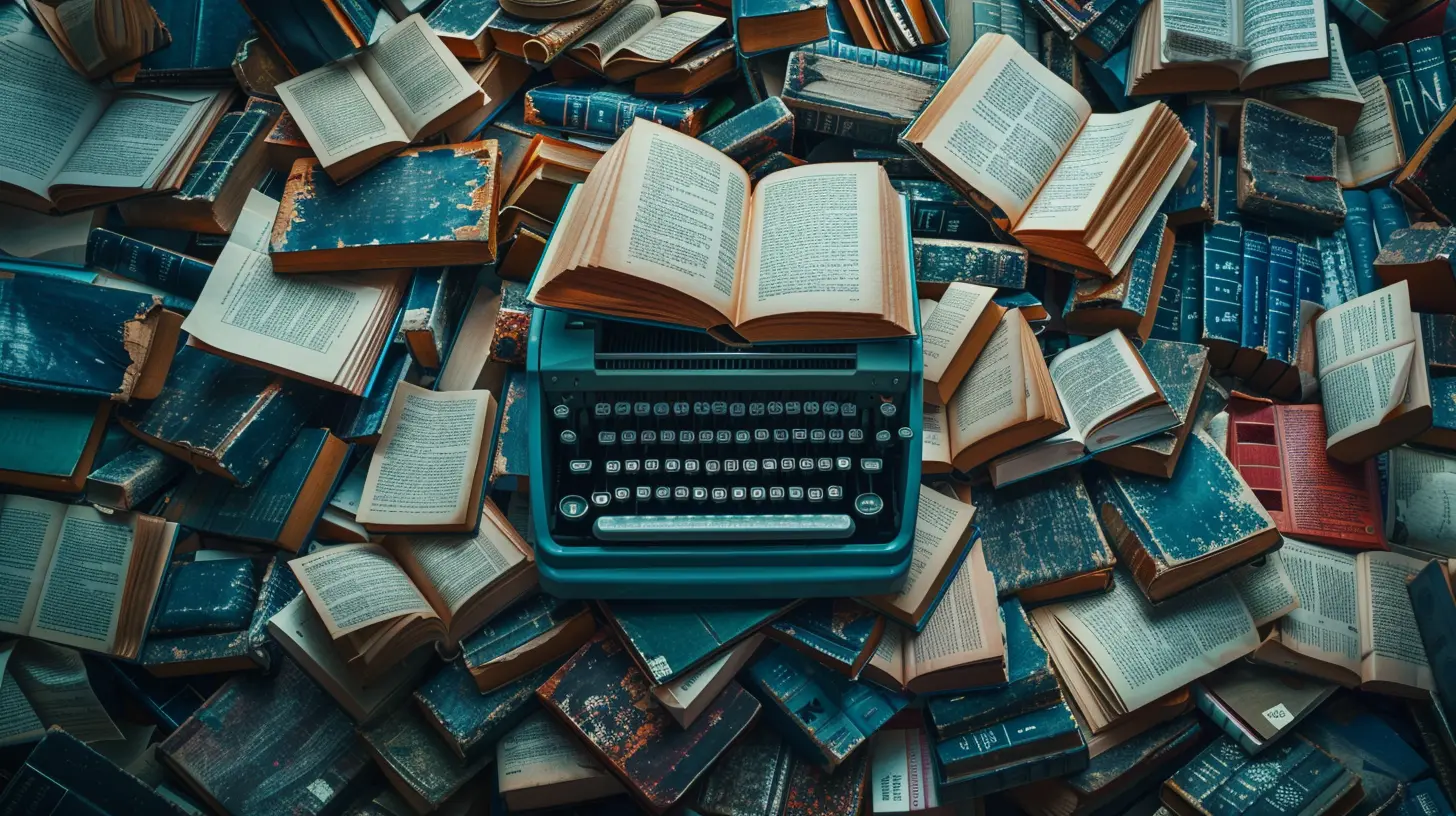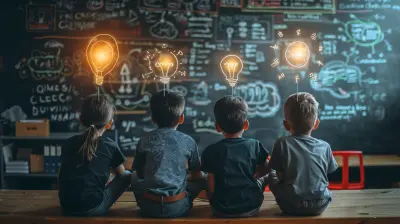Media Literacy and the Future of Journalism
24 October 2025
Let’s face it—news isn’t what it used to be. Remember when you had to wait for the evening news at 6 PM or skim through the daily paper with your morning coffee? Fast forward to today: news flies at you from all angles—your phone buzzes with push notifications, social media feeds are flooded with updates, and YouTube “news experts” are just one click away. Welcome to the digital jungle of journalism.
And in this ever-shifting landscape, one skill is more important than ever: media literacy. Not just for students or journalists, but for all of us. If we want to keep up (and not get duped), we have to learn how to navigate, question, and make sense of the media we consume. So, what exactly is media literacy? And what does it mean for the future of journalism? Let’s break it all down.
What Is Media Literacy Anyway?
First off, let’s clear the fog. Media literacy isn’t just about spotting fake news (though that’s part of it). It’s about understanding how media works—how it’s made, who’s behind it, why it's presented the way it is, and how it affects us.Think of it like giving your brain a pair of high-quality glasses. Suddenly, you’re able to see beyond the headlines, the viral tweets, or even the well-edited documentaries. You begin to ask:
- Who made this?
- What's their agenda?
- Is this credible?
- Where's the evidence?
Media literacy teaches us to be thoughtful, curious, and just a little skeptical—in the best way possible.
Why Is Media Literacy So Important Now?
Let’s be real. The digital age has thrown open the doors to a wild mix of voices, opinions, and content creators. Traditional gatekeepers of news—editors, journalists, media institutions—aren’t the sole storytellers anymore. That’s both awesome and terrifying.Here’s why media literacy is more critical now than ever before:
1. The Rise of Misinformation and Disinformation
Misinformation happens when someone shares incorrect info without knowing it. Disinformation, on the other hand, is shared with the intent to deceive. Both are spreading at warp speed, especially on social media. Without media literacy, it's way too easy to fall for catchy headlines or well-packaged lies.2. Information Overload
Have you ever scrolled endlessly through news stories and thought, “Wait, what’s actually true?” There’s just so much content out there—it’s overwhelming. Media literacy helps us filter the noise and find what’s actually worth our attention.3. The Blurring of Fact and Opinion
Let’s be honest: a lot of what’s labeled “news” is actually opinion. That’s not always bad, but it can be confusing. Media literacy helps us tell the difference and decide what to take seriously.
Journalism’s Shaky Ground
Ah, journalism. The watchdog of democracy. But lately, it’s had a rough ride. With shrinking newsrooms, click-driven incentives, and public trust taking a nosedive, the future of journalism seems uncertain. But here’s the thing—it’s also full of potential.The Shift From Print to Pixels
Traditional newspapers are folding left and right. Digital news is the new norm. That means journalists need to adapt, fast. They’re not just writers anymore—they’re podcast hosts, video editors, social media managers, and data analysts. Journalism is no longer a one-trick pony.The Trust Crisis
Let’s talk about the elephant in the room: a lot of people don’t trust the media these days. Whether due to political bias, corporate ownership, or past mistakes, journalism has a credibility problem. Media literacy can help solve that by teaching the public to understand how news is produced—and holding media accountable.Citizen Journalism Has Entered the Chat
Everyone with a smartphone can now be a “journalist.” Protest footage? Tweetstorm updates? Breaking news from the ground? It’s all citizen journalism. It’s raw, it’s instant, and sometimes, it’s more honest than traditional reports.But there’s a catch. Not all of it is accurate. And this is where media literacy steps in again—to help us evaluate whether a viral video is legit or just someone pushing their narrative.
The Power of the Audience: You’re Not Just a Consumer
Here’s a wild thought: you’re not just consuming media; you’re also shaping it. Every like, comment, share, and retweet sends a signal. Algorithms pick up on it. Headlines are tested and tweaked according to what you click on.So, guess what? You’re part of the story. That’s a pretty big responsibility, right? Media literacy teaches us to engage consciously, rather than just reacting or scrolling mindlessly.
Social Media: The Double-Edged Sword
Let’s talk about the behemoth that changed everything—social media.On one hand, it democratized information. On the other, it created echo chambers where people only hear what they already believe. That’s not great for public discourse. Algorithms don’t prioritize truth—they prioritize engagement. And outrage? Oh, that gets clicks.
If you’ve ever gotten into a heated debate in the comment section, you know exactly what I mean.
Media literacy helps you spot when you’re being manipulated. When a video is edited out of context. When a post is designed to provoke rather than inform.
Teaching Media Literacy: Start Young, Stay Sharp
Let’s not wait until college to start teaching media literacy. Kids are exposed to media almost from the moment they can swipe. So why not arm them early?Here’s what effective media literacy education might include:
- How to evaluate sources
- How to detect bias
- How algorithms influence what we see
- How to fact-check using credible tools
- How to create ethical media content
It’s like digital hygiene—it needs to be a part of our daily habits.
Journalism Isn’t Dying; It’s Evolving
Yes, the future of journalism is rocky. But it's not all doom and gloom. If anything, it's an invitation to innovate.Solutions Journalism
Instead of just “what’s wrong,” we’re seeing a rise in journalism that focuses on “what’s being done about it.” It’s called solutions journalism, and it gives people hope and context—not just fear.Data Journalism
Numbers aren’t sexy, but data journalism is making them cool. Visual infographics, interactive charts, and deep dives into statistics are helping us understand complex issues in clear ways.Collaborative Journalism
Journalists from different outlets are teaming up across borders, joining forces to uncover big stories—think Panama Papers and global corruption scandals. It's teamwork on steroids, and it's changing the game.What Can You Do? Be a Media-Savvy Human
Let’s bring it home with some practical stuff. How can you make sure you're not just another cog in the fake news machine?1. Check Before You Share
If you’re about to hit “share” just because a headline made you angry—pause. Read the full article. Look at the source. Google it. Snopes it. Easy.2. Diversify Your News Diet
Don’t just get your news from one place. Mix it up. Follow reputable sources from different sides of the spectrum. International outlets, investigative journalism sites, even newsletters can offer fresh perspectives.3. Talk About It
Media literacy isn’t a solo adventure. Talk to friends, classmates, family. Discuss different stories. Ask questions. Challenge assumptions. That’s how we grow.The Bottom Line
Media literacy and the future of journalism are tied together like peanut butter and jelly. One can’t thrive without the other.As the media world becomes more complex, we need to become more thoughtful consumers. Journalism needs to bounce back—stronger, smarter, and more transparent. And we, the audience, need to meet it halfway—not by being passive readers, but by being savvy participants.
So the next time you see a news story blowing up your feed, don’t just scroll past. Look closer. Ask questions. Be curious.
Because in a world drowning in information, being media literate isn’t just a skill—it’s a superpower.
all images in this post were generated using AI tools
Category:
Media LiteracyAuthor:

Madeleine Newton
Discussion
rate this article
1 comments
Annette Middleton
This article sparks intriguing questions about the evolving relationship between media literacy and journalism. How can we empower audiences to discern fact from fiction in an increasingly digital landscape? Exciting times lie ahead for informed discourse!
October 27, 2025 at 3:26 AM

Madeleine Newton
Thank you for your thoughtful comment! Empowering audiences through education, critical thinking, and accessible resources is key to navigating the digital landscape. I appreciate your engagement with these important issues!


